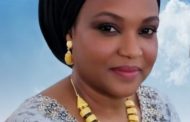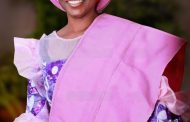Three big names dead in the creative space under one month! That’s a big blow to any nation.

The late Chukwuemeka Ike, the literati as a traditional ruler

Seeing tomorrow from yesterday
First to go was Chief Chukwuemeka Ike, former Registrar of the West African Examinations Council, (WAEC) who passed on January 9th, 2020. He was a literary seer who foresaw the decay in the university system, youth degeneration but also the resilience of the entity called Nigeria very early in the day. They are all there in his major works such as The Naked Gods; Toads for Super, Sunset in Biafra as well as Our Children are Coming, amongst others. The worrisome issue here is whether the younger ones, including those studying Literature at university are engaging with his texts. It is doubtful if that is happening. Those who think otherwise might want to ask any gathering of current students of the subject who the character Amadi and Nwakaego are and in which of Ike’s works they appeared. Or who the name Crystal refers to and in which of the texts.
Next was Victor Olaiya, described as “The Evil Genius of Highlife” by ace Daily Times columnist, Alhaji Alade Odunewu, according to Wikipedia. He left this world on February 12th, 2020 at age of 89. Wikipedia’s entry on him illustrates the heights members of his generation attained across all spheres in Nigeria. For instance, as early as then, he had been admitted to read Civil Engineering by Howard University in the USA but had already detected in himself musical potentials of the proportion of a genius as not to go that way but that of music.
And now, Prof Harry Garba has followed on February 28th, 2020 at the age of 61. The Professor of Comparative Literature at The University of Cape Town in South Africa was equally a poet of no mean standing.


The now late Prof Garba
Intervention recalls encountering Prof Garba at the University of Ibadan on June 25th, 2019 at the conference put together by Professor Eghosa Osaghae led Programme on Ethnic and Federal Studies, (PEFS) on the 2019 General Elections. His presentation was titled “The 2019 General Elections in Comparative African Perspective: The South African Experience”, (https://intervention.ng/16589/)
It was unarguably the most skillfully presented and one of the most scholarly structured interventions, steeped in biopolitical analysis. No accusatory verbiage, no howling. Just one claim and the evidence after the other! It was great to learn from him that the Republic of South Africa is one of the most biometric states in the world, far ahead of many industrial nations. He gave this as a matter of facts, not as a commendation but, if anything, as a critique because it is not necessarily anything so good to be a biometric state even as it helps. He was absolutely informed about how the South African ruling elite had been negotiating the political space by offering waivers on key existential issue areas to its subalterns to be winning elections every four years.
He was as well an exemplar of the disappearance of disciplinary boundaries in contemporary academia beyond budgets and titles because no one could distinguish between him and an orthodox political scientist. His analytical verve in handling the dynamics of South African politics made such distinction impossible.
The few hours he was at the conference suggested he was an easy going guy. He posed for photographs with as many who cared to request for such, offering to write all his two email addresses as well for as many as asked him. To oblige himself the luxury of a cigar, he sneaked into a corner, obviously not wanting to inconvenience anyone.
It is not surprising that condolence messages are pouring in from friends, colleagues, students and other sympathisers across the continent and beyond into a Facebook platform opened in his honour, six days after his demise from leukemia.
So, how might this wave of deaths in Nigeria’s creative space be stopped?




























